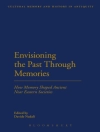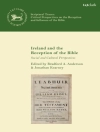The third issue of the yearbook History of Intellectual Culture (HIC) devotes a thematic section to experimental spaces for knowledge production. The articles in this section investigate the role of experimental environments as sites for knowledge production during the long nineteenth century, thereby extending the scope beyond the confines of traditional academic institutions such as academies, laboratories, and universities. By focusing on intentional communities, colonial gardens, agricultural colonies, and artistic colonies as experimental spaces, the authors investigate the intertwined social, natural, and aesthetic aspects of environments. An overarching aim is to develop a distinct perspective rooted in the history of knowledge, wherein experiments are conceptualized both as a category employed by the historical actors and as a methodological concept.
In addition, the third issue comprises several individual papers covering a wide range of topics, stretching from the U.S. patent system in the 1930s and anti-intellectualism in interwar Britain to the cultural translation of knowledge in the wake of the Holocaust and the circulation of economic knowledge in postwar Sweden. The issue also contains several theoretical, historiographical, and methodological interventions and reflections, including a conversation on decolonizing knowledge in academia and beyond.
Sobre o autor
Charlotte A. Lerg, LMU Munich, Germany; Johan Östling, Lund University, Sweden; Jana Weiß, The University of Texas at Austin, USA; Anne Kwaschik and Claudia Roesch, University Konstanz, Germany.












